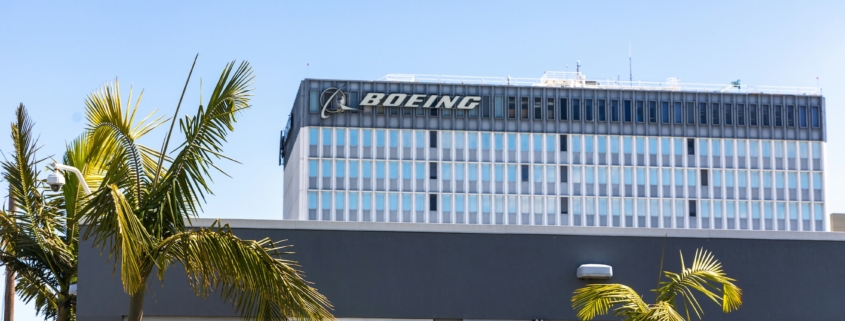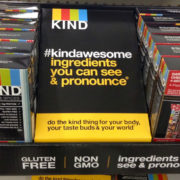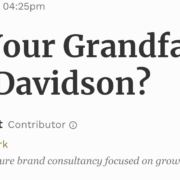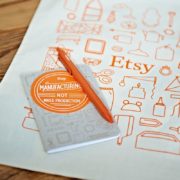Boeing and Starbucks Have A Common Brand Problem: Trust Generating Trust Capital
Two of America’s foremost brands have new CEOs. Both brands appear to be in crisis. These two brands are very different. One brand is a consumer café brand. The other brand is a durable goods, engineering brand.
Boeing and Starbucks.
You could not find two more unrelated brands. And, yet, Boeing and Starbucks have a significant issue in common. This issue is so significant that it should be on the turnaround agendas of both of the new CEOs.
That common significant issue is trust generating Trust Capital.
You may be thinking that trust in Boeing and trust in Starbucks have totally different implications. After all, trust in Boeing revolves around personal safety, in extreme situations, life and death. Trust in Starbucks revolves around the quality delivery of the expected total brand experience time and again. There are no life and death ramifications when choosing Starbucks, although it may seem like it when you really need that caffeine hit.
Trust is a complicated and elegant component for any brand. Trust is an absolute necessity for brand value. And, brand value is integral to Trust Capital. Research identifies trust as having a significant effect on brand value. And, brand value influences loyalty. And, without brand value there is no shareholder value.
In a working paper from 2001, research supported the facts that trust
“… creates value by a) providing relational benefits derived from interacting with a service provider who is operationally competent, benevolent towards the consumer, and committed to solving exchange problems, and, b) reducing exchange uncertainty and helping the consumer from consistent and reliable expectations of the service provider in ongoing relationships.”
In other words, trust is the willingness of one party to rely on another partner to deliver what is expected. Trustworthiness relies on employees as well as management policies and practices designed with the customer’s best interests at heart.
Other trust definitions are “a willingness to rely on an exchange partner in whom one has confidence.” Or, “the expectation held by the customer that the service provider is dependable and can be relied on to deliver its promises.” Trust is fundamental in building and maintaining long-term relationships, both personal and brand-business. Trust enhances the quality of a relationship and minimizes perceived risk, financial or otherwise.
Bottom line: People prefer to do business – whether business-to-consumer or business-to business – with brands they trust.
A few years ago, the global financial services group, Deloitte, referred to trust as currency. Deloitte stated that trust is an exchange of value. Deloitte defined trust as “… our willingness to be vulnerable to the actions of others because we believe they have good intentions and will behave well towards us.”
Whatever your trust definition, to succeed – to win, organizations must build trust and generate Trust Capital. “Capital” means “… money and/or other assets and resources that contribute to the health and enduring profitable growth of the enterprise.”
In general, most brand-businesses focus on three forms of organizational wealth: Financial Capital, Intellectual Capital and Human Capital. But, Trust Capital is a critical fourth component.
Financial Capital is the money used by a brand-business to buy what it needs to make its products. Financial Capital is the money allocated to provide services to the sector of the economy in which its operation is based.
Intellectual Capital is the combination of three things. 1) Intellectual Capital is the organization’s intellectual property including trademarks, patents, licenses and brands. 2) Intellectual Capital is the brand-business’ unique processes, databases and infrastructures. 3) Intellectual Capital is the brand-business’ special customer, franchisee/owner-operator and supplier relationships for building and maximizing the organization’s wealth.
Human Capital is the collective skills, knowledge or other intangible people-assets of the brand-business’ individuals. Human Capital is the “people talent” of the brand-business helping to create economic wealth.
Add Trust Capital to these three.
Trust Capital is stakeholder confidence in the leadership, credibility, integrity and responsibility of a brand-business to deliver its promises of value to its stakeholders. Trust Capital is a value-creating asset. Trust Capital is an intangible asset that increases the power of marketing expenditures and reduces the cost of new brand introductions.
Trust Capital is what the organization draws on during troubling events, mishaps or crises, such as coronavirus, plane crashes, perceptions of socio-political-cultural bias or eroding customer traffic. Trust Capital is a most valuable asset in those occasions when a brand needs to defend itself during unexpected, unfortunate situations. Generating and accumulating Trust Capital in a trust reserve – a Trust Bank – provides a trust buttress helping to weather crises of character.
Trust Capital helps to create enduring profitable growth. But, although Trust Capital is an intangible asset, Trust Capital is an asset that strengthens brands, bringing stability, organizational confidence and the generation of future potential earnings. Aside from the myriad of issues facing Boeing and Starbucks, both Boeing and Starbucks need brand strengthening, organizational confidence and the hope of generating future potential earnings.
Boeing and Starbucks demonstrate how easy it is for trust to become mistrust in a matter of moments. Whether there has been a disaster or a crisis of mismanagement, having a full Trust Bank reserve of Trust Capital stabilizes the situation helping organizations return to their trusted relationships with stakeholders. It appears that both Boeing and Starbucks have depleted their Trust Banks, especially among their various stakeholders.
Boeing and Starbucks have vastly different operational issues. There are also vastly different constituencies to satisfy. But, trust and building Trust Capital are essential for both brands. And, both brands have new CEOs who can add trust and Trust Capital to their other important, must-do’s strategies.
When it comes to trust and building Trust Capital, what can Boeing and Starbucks add to their turnaround plans?
Here are four actions to take right now.
First, create a Trust Agenda.
It is critical to produce the right results by doing the right things in the right way. This principle applies to every stakeholder relationship. In order to grow trust and generate Trust Capital, the new CEOs at Boeing and Starbucks must have a corporate strategic platform based on a Trust Agenda. This Trust Agenda addresses issues such as:
- How will we build trust across our geographies, our brands, our people, our shareholders, our franchisees, our partners, our suppliers and our local communities?
- How will we build trust chains throughout all of our relationships, internal and external?
- How will we ensure that we include corporate responsibility is integrated into all of our decision-making?
- Are we a good global and local corporate citizen?
- How sustainable are our actions? A Trust Agenda will ensure that a sustainability opportunity is on the front burner. This means meeting the needs of customers, communities and businesses without compromising the needs of future generations.
Having a Trust Agenda allows an organization to be a steady force for good while not standing still.
Second, the CEO must be the CTO, Chief Trust Officer.
The new CEOs at Boeing and Starbucks cannot delegate the leadership necessary for building trust and generating corporate Trust Capital. Trust Capital-building is a CEO responsibility. The CEO is the Chief Trust Officer. Chief Trust Officer is a fundamental, ongoing, leadership responsibility. Trust building begins at the top. The CTO role must not be delegated.
The role of Chief Trust Officer is more than a title. CTO is an indispensable, trust-growing and Trust Capital-building task of major cultural and financial significance inside and outside the organization. Studies show that increased trust is a critical factor leading to increased preference and loyalty, generating high quality revenue growth.
Third, do what you say you will do.
Do what you say you will do is the foundation upon which trust is built. It is a cliché to say that actions speak louder than words. It is a cliché because it is so true. Nothing kills trust more than promising and not delivering. Boeing must deliver high quality, zero defect airplanes. Starbucks must deliver high quality coffee and the Starbucks connoisseur café experience.
Fourth, build Leadership, Credibility, Integrity and Responsibility.
- Leadership must be demonstrated, not merely claimed. The brand-business must be a thought leader. Is your brand-business perceived to be innovative? And, are you growing in size?
- Credibility means your statements and actions are plausible. Be dependable. Be capable, competent and an expert in your field. Provide superior complaint resolution. Be a trustworthy source of information.
- Integrity means having customers’ interests at heart. Be accountable for actions. Behave ethically.
- Responsibility provides competitive advantage. Demonstrate good global corporate citizenship. Corporate Social Responsibility is not a separate division within the organization. It is a way of doing business.
As the Edelman Trust Barometer continues to show, there is a global trust deficit. Building trust must be a brand-business priority. Accruing Trust Capital is essential for high quality revenue growth for profitability and success. Without trust there is no brand value. Without brand value there is no shareholder value. Trust plays a critical role in perceived value. Trust Capital leads to high quality revenue growth.
Businesses want brand-businesses that businesses can trust. Trust is must. The recent story of Costco in The New York Times shows the power of trust and Trust Capital. In describing Sol Price, Costco’s founder, the co-author of The Joy of Costco said, “Everything was about trust. He (Sol Price) would rather lose your business than your trust.” For Boeing and Starbucks, having new CEOs provides the needed jump-start for rebuilding trust and generating Trust Capital.









